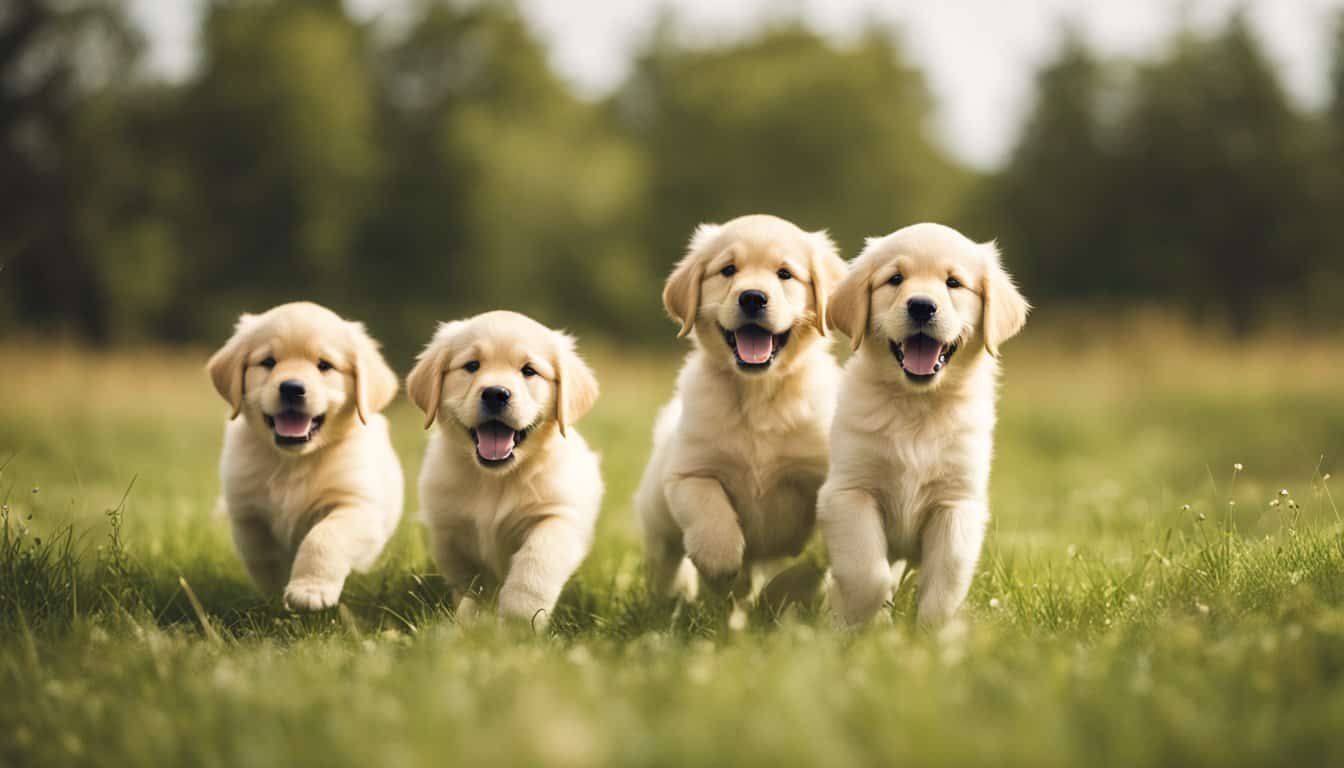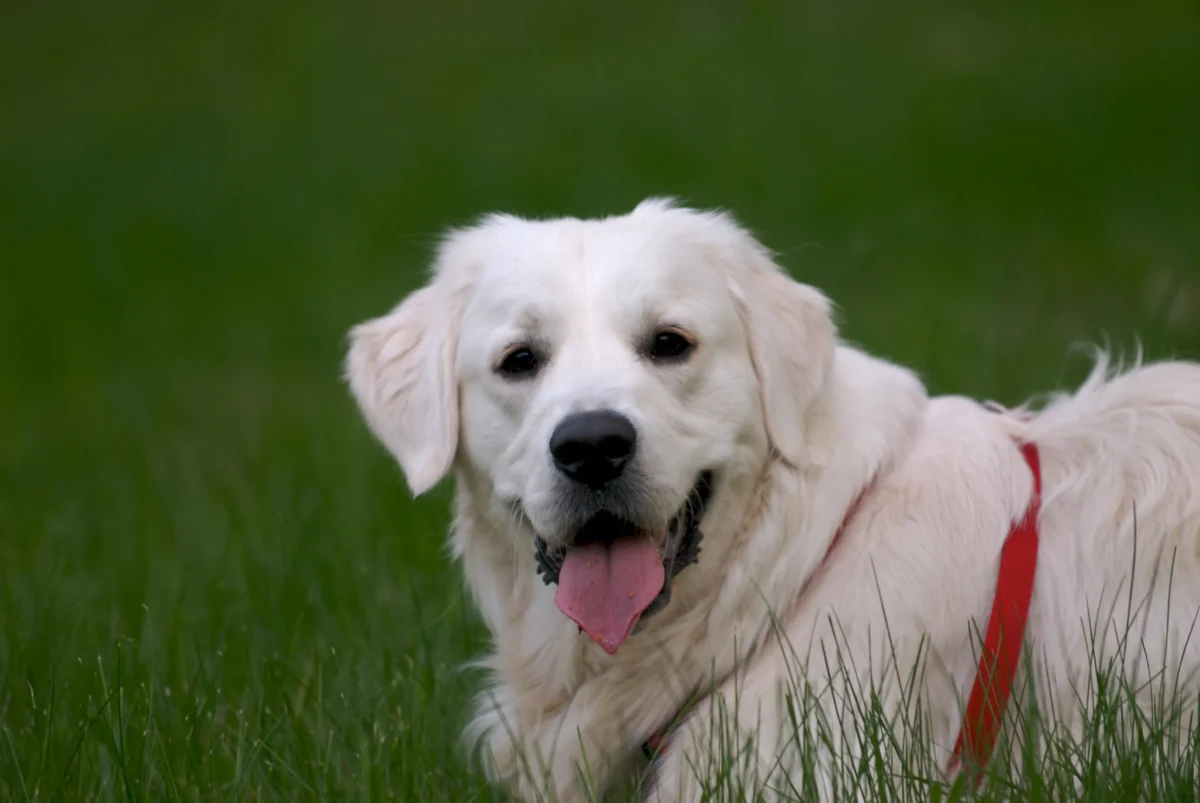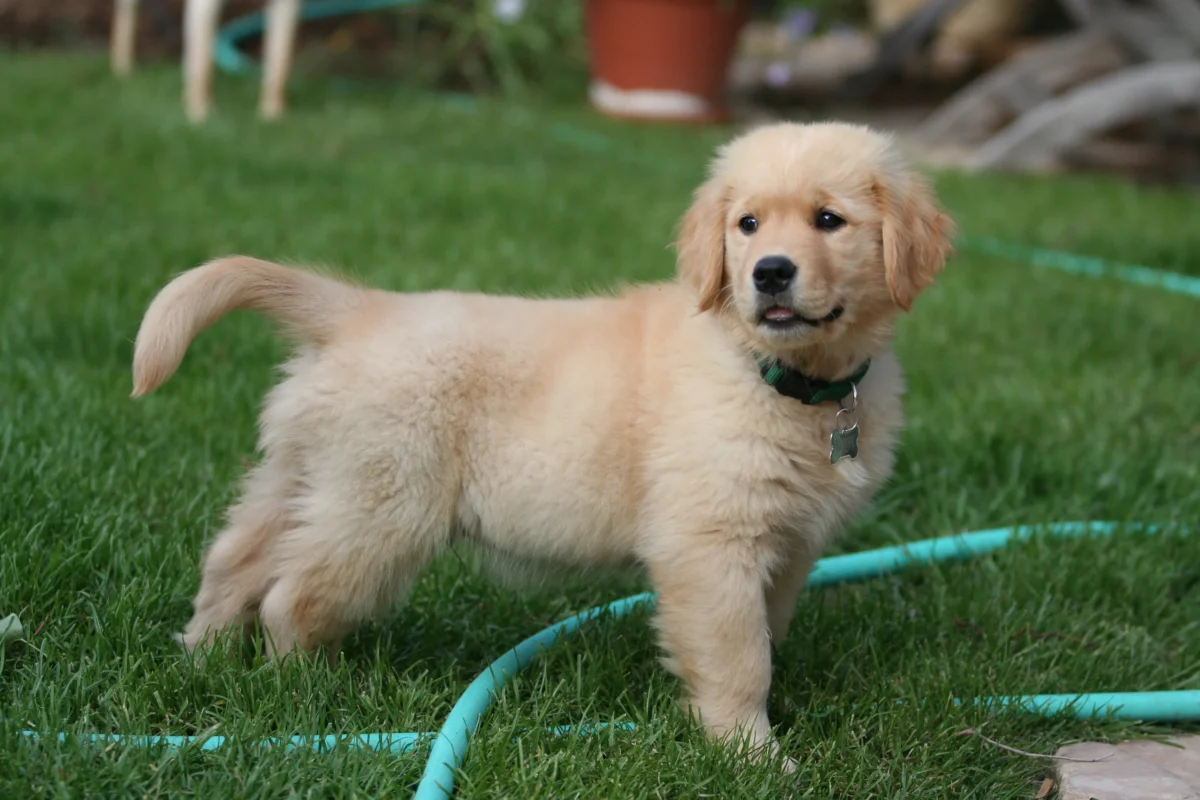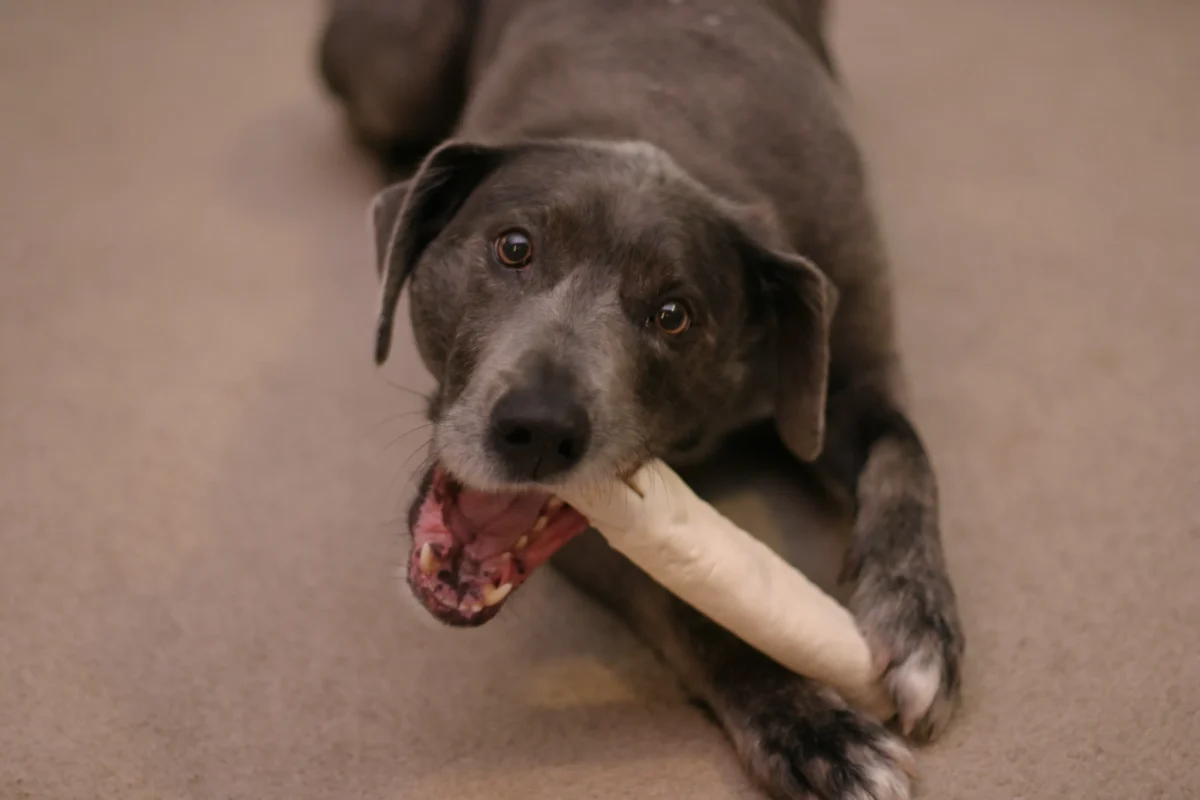Imagine this scenario: you’re out for a peaceful walk with your beloved golden retriever, enjoying the fresh air and sunshine. Suddenly, out of nowhere, a pitbull lunges at your furry friend, attacking with aggression and force. It’s a terrifying situation that no pet owner ever wants to face. But what happens next? In this article, we’ll explore the story of a golden retriever who was attacked by a pitbull, and delve into the aftermath of this traumatic event.
When a gentle golden retriever finds itself in the clutches of a pitbull attack, the consequences can be devastating. From physical injuries to emotional trauma, both the dog and its owner are left to pick up the pieces. In this article, we’ll uncover the details of what happened to a golden retriever who faced such an attack, and the journey of recovery that followed. Join us as we explore the resilience and strength of these incredible creatures, and the support systems that exist to help them heal.
In the face of adversity, the true character of a golden retriever shines through. In this article, we’ll follow the story of a brave and resilient pup who survived a pitbull attack. From the initial shock and fear to the long road to recovery, we’ll uncover the challenges faced by both the dog and its owner. Join us as we delve into this heart-wrenching tale and discover the remarkable strength of these beloved canine companions.
Understanding the Initial Incident
When it comes to our beloved furry friends, accidents can happen, sometimes resulting in unexpected situations. One such incident occurred with a golden retriever who faced an unfortunate encounter with a pitbull. It’s important to understand the details of this incident and its aftermath to ensure the safety and well-being of our own pets.
In this heart-wrenching incident, the golden retriever, along with its dedicated owner, experienced both physical injuries and emotional trauma. As a dog lover and owner of a golden retriever and a Goldendoodle myself, incidents like these can shake us to our core.
The Physical Toll
The pitbull’s attack left the golden retriever with a range of physical injuries. Bite wounds, lacerations, and broken bones were among the firsthand effects. The road to recovery for our furry friend involved veterinary care, surgeries, and a considerable amount of time to heal. It is vital to have an understanding of these potential physical injuries, as they can happen even in instances where our dogs are taken care of diligently.
The Emotional Impact
Aside from the physical toll, it is crucial to recognize the emotional trauma both the dog and its owner faced. Dogs, just like humans, can experience anxiety, fear, and even PTSD in the aftermath of a traumatic incident. As devoted owners, it is our responsibility to provide the necessary support and seek professional help when needed. Remember, our pets rely on us for comfort and reassurance during difficult times.
Moving Forward
Understanding the initial incident is the first step towards a positive future for our pets. By educating ourselves about the potential risks and consequences, we can take precautionary measures to prevent similar incidents. It’s essential to train our dogs to ensure they respond appropriately in social situations and to be vigilant when encountering unfamiliar dogs.
Remember, accidents can happen, but with knowledge and preparedness, we can protect our beloved pets. Stay informed, be cautious, and always prioritize the well-being of your golden retriever or Goldendoodle. Your furry friend depends on your love and care.
Seeking Immediate Medical Attention
Your beloved golden retriever has just been attacked by a pitbull. In moments like these, it’s essential to act quickly and seek immediate medical attention for your furry friend. Here are the steps you should take to ensure your golden retriever receives the care they need:
- Assess the situation: Take a deep breath and evaluate the severity of your dog’s injuries. If there is visible bleeding, broken bones, or signs of distress, it’s crucial to proceed with urgency.
- Call your veterinarian: Contact your trusted veterinarian clinic, explaining the situation and requesting immediate medical assistance. They will be able to guide you on the next steps and may provide instructions on how to stabilize your dog before bringing them in.
- Stabilize your dog: If there is excessive bleeding, apply direct pressure to the wound using a clean cloth or bandage. Keep your dog as calm and still as possible to prevent further injury. If your dog is unable to walk or seems to be in significant pain, use a stretcher or a large blanket to transport them safely.
- Provide necessary information: When you contact the veterinarian clinic, be prepared to share details about the attack, such as the breed of the aggressor dog and any witnesses. This information will help them assess the potential risks and prepare the appropriate treatment for your golden retriever.
- Follow the veterinarian’s instructions: Once you arrive at the clinic, the veterinary team will take over and provide the necessary medical care for your dog. It’s important to follow their instructions carefully, including any prescribed medications, scheduled appointments, or potential further treatment options.
Remember, seeking immediate medical attention can significantly increase the chances of a positive outcome for your beloved golden retriever. By acting swiftly and seeking professional help, you are giving your dog the best chance at a full recovery. Stay vigilant, follow these steps, and trust that your furry friend is in good hands.
Veterinary Assessment and Treatment
If your golden retriever or Goldendoodle has been attacked by a pitbull, it is crucial to seek immediate veterinary attention. The well-being of your beloved furry friend should always be your top priority. In this section, we will discuss the veterinary assessment and treatment process, helping you understand what to expect and how to support your dog during this challenging time.
1. Contact a Veterinarian
As soon as the attack occurs, call your veterinarian’s office or the nearest animal hospital. Provide them with a brief description of the situation and let them know that it is an emergency. They will guide you on the next steps and may even request you to bring your dog in immediately.

« Unveiling the Secret Health Risks of Golden Retrievers: You Won’t Believe What Diseases They’re Prone To
Revealed: The Ultimate Guide to Find the BIGGEST Golden Retriever – Uncover the Secrets Now »
2. Stabilize Your Dog
While waiting for veterinary guidance or during transportation, it is important to keep your golden retriever or Goldendoodle as calm and comfortable as possible. Be cautious while handling them to prevent further injury. If necessary, muzzle your dog to prevent them from biting, but do so carefully to avoid causing additional distress.
3. Provide Necessary Information
When you speak to the veterinarian, be prepared to provide them with important details about the attack, such as the time it occurred, the extent of the injuries, and any other relevant information. This information will help them assess the situation and provide appropriate treatment.
4. Veterinary Assessment and Treatment
Upon arrival at the veterinarian’s office, your dog will undergo a thorough assessment. This may include a physical examination, X-rays, or other diagnostic tests to determine the extent of the injuries. The veterinarian will then develop a treatment plan tailored to your dog’s specific needs.
5. Follow the Veterinarian’s Instructions
Once the treatment plan is established, it is crucial to carefully follow the veterinarian’s instructions. This may involve medications, wound care, rest, or additional appointments. Your active participation in your dog’s recovery process will greatly contribute to their overall well-being.
Remember, every dog is unique, and the severity of the injuries can vary. It’s important to stay positive and provide a loving and supportive environment for your dog as they heal. By seeking prompt veterinary attention and following the professional guidance, you are giving your golden retriever or Goldendoodle the best chance at a full recovery.
Emotional and Behavioral Impacts on the Golden Retriever
As a dog lover and owner of a golden retriever and Goldendoodle, you understand the deep bond that forms between you and your furry friends. Unfortunately, if your golden retriever is ever attacked by a pitbull, it can have lasting emotional and behavioral impacts on your beloved companion. In this section, we will explore some of these potential effects.

1. Fear and Anxiety
One of the most common emotional impacts experienced by a golden retriever after an attack is fear and anxiety. The traumatic experience can leave your dog feeling anxious and fearful in various situations, especially when encountering other dogs. They may display signs of fear, such as trembling, excessive panting, or hiding away from potential threats.
2. Aggression and Reactivity
Another behavioral impact that your golden retriever may exhibit is aggression or reactivity towards other dogs. After being attacked, your dog may become more defensive and show aggressive behavior as a means of protecting themselves. This can be challenging to deal with, and it is important to seek professional help to address and manage their aggression effectively.
3. Trust Issues

An attack by a pitbull can also cause your golden retriever to develop trust issues. They may become wary of unfamiliar dogs or humans, especially if they resemble the pitbull that attacked them. Rebuilding their trust will require patience, positive reinforcement, and gradual exposure to safe and controlled environments.
4. Decreased Confidence
The traumatic experience of a pitbull attack can greatly impact your golden retriever’s confidence. They may become less outgoing and hesitant to explore new environments. It is crucial to provide them with a safe and supportive space to help rebuild their confidence and encourage positive experiences.
5. Increased Dependence
Lastly, your golden retriever may develop an increased dependence on you as their guardian. After an attack, they may seek reassurance and comfort from you more frequently. It is essential to provide them with the love, attention, and support they need during this challenging time.

Understanding and addressing the emotional and behavioral impacts on your golden retriever after an attack is crucial for their overall well-being. Remember, seeking professional guidance from a veterinarian or animal behaviorist is vital to ensure the best possible outcome for your furry friend. With time, patience, and love, you can help your golden retriever heal and regain their confidence.
Strategies for Rehabilitation and Recovery
If your beloved golden retriever or Goldendoodle has been attacked by a pitbull, it can be an incredibly distressing and traumatic experience for both you and your furry friend. However, there are strategies you can implement to help your dog through the rehabilitation and recovery process. Here are some tips to guide you:
1. Seek Professional Veterinary Care: The first and most crucial step in your dog’s recovery is to seek immediate veterinary attention. A professional veterinarian will be able to assess the severity of the injuries and provide appropriate treatment. They may prescribe medications, perform surgeries if necessary, and give you specific instructions on how to care for your dog’s wounds.
2. Provide Physical and Emotional Support: Your dog will need extra care and attention during this time. Ensure they have a quiet and comfortable space to rest, away from any potential stressors. Offer them gentle physical contact, such as petting and cuddling, to help them feel safe and loved. Remember, patience and empathy are key.
3. Follow Rehabilitation Exercises: Depending on the extent of the injuries, your veterinarian may recommend specific rehabilitation exercises to aid in your dog’s recovery. These exercises can help build strength, improve mobility, and restore confidence. Be consistent and gentle while assisting your dog through these exercises, always keeping their comfort in mind.

4. Engage in Positive Reinforcement Training: After an attack, your dog may experience fear or anxiety, which can lead to behavioral changes. Positive reinforcement training can be helpful in rebuilding their confidence and trust. Use treats, praise, and rewards to encourage desired behaviors and create a positive association with training sessions.
5. Gradual Exposure to New Experiences: Your dog may develop fear or aggression towards other dogs or certain situations after an attack. Gradually introduce them to new experiences in a controlled and positive manner. Consult with a professional animal behaviorist if needed, who can guide you through desensitization and counter-conditioning techniques.
Remember, every dog’s recovery journey is unique, and it may take time for your furry friend to regain full physical and emotional wellbeing. By providing the appropriate care, support, and professional guidance, you can help your golden retriever or Goldendoodle heal and thrive once again.
Conclusion
Remember, if your golden retriever or Goldendoodle is ever attacked by a pitbull, it’s crucial to act quickly and seek immediate veterinary attention. Assess the situation, contact a veterinarian, and stabilize your dog as best you can. Provide the necessary information and follow the veterinarian’s instructions for the best chance of recovery.
Keep in mind that a pitbull attack can have emotional and behavioral impacts on your dog. Fear, anxiety, aggression, trust issues, decreased confidence, and increased dependence are all common responses. Understanding and addressing these impacts is vital for your dog’s overall well-being.

Rehabilitation and recovery strategies include seeking professional veterinary care, providing physical and emotional support, following rehabilitation exercises, engaging in positive reinforcement training, and gradually exposing your dog to new experiences. Remember that every dog’s journey to recovery is unique and may take time. However, with the right care, support, and professional guidance, your golden retriever or Goldendoodle can heal and thrive once again.
Stay vigilant, stay informed, and remember that you are not alone in this journey. Your dog’s well-being is important, and with the right steps, you can help them overcome the challenges they face after a pitbull attack.






